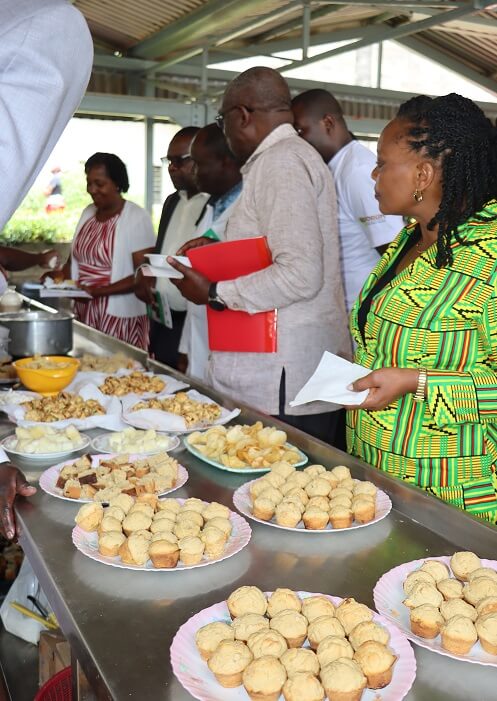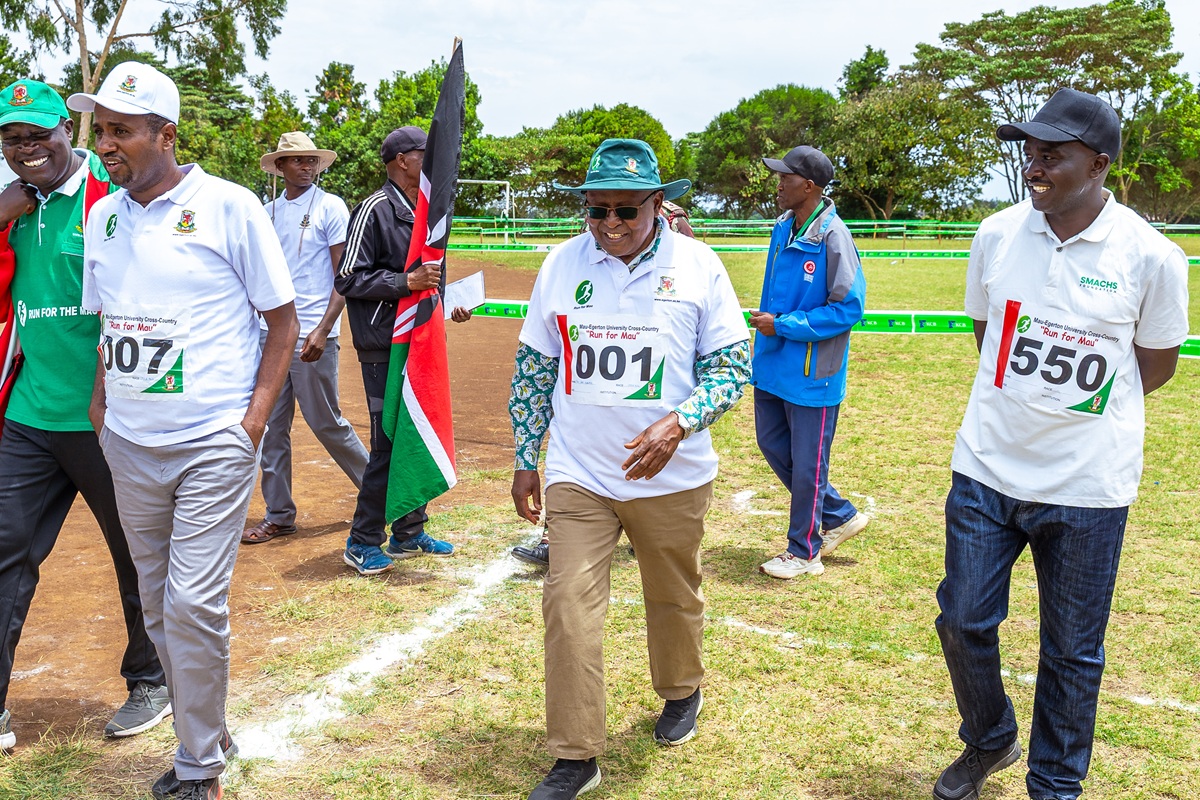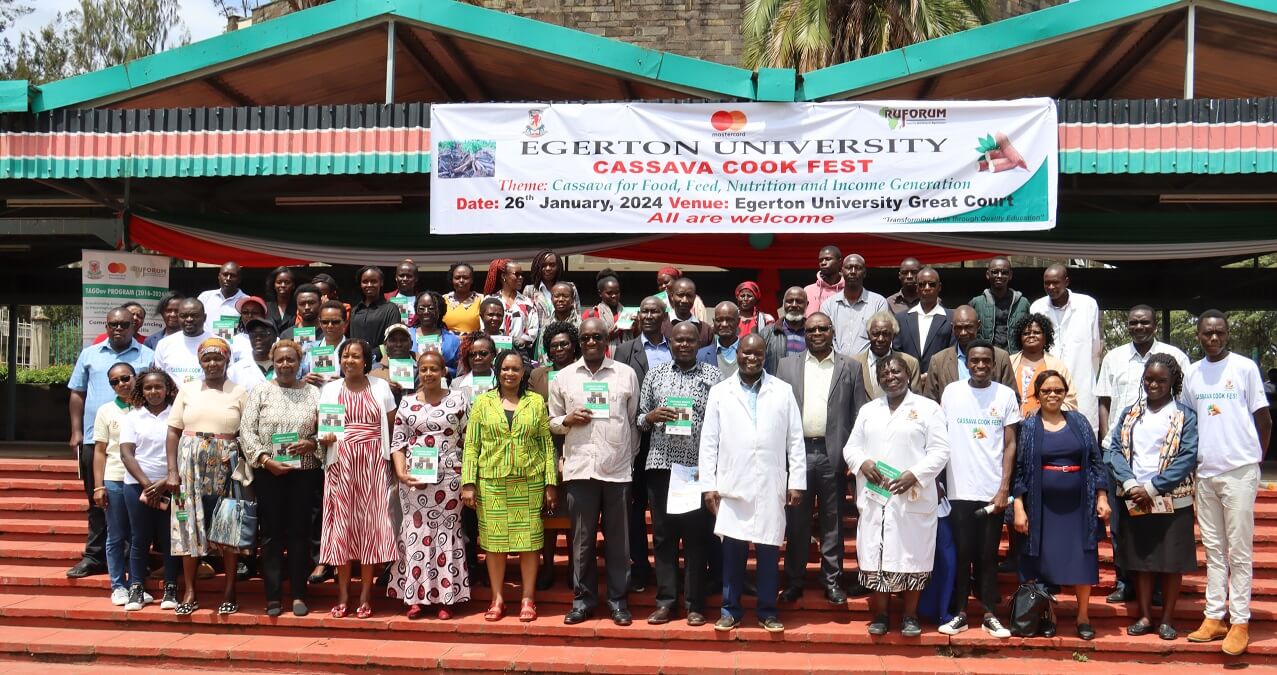The Cassava Cook Festival held in Nakuru kicked off with an insightful overview from Director of Research, Prof. Nancy Mungai, highlighting the substantial support provided by Ruforum and TAGDev to promote sustainable farming in the region. The festival became a platform to discuss the transformative journey of cassava, particularly in Nakuru County's arid zones.
Professor Richard Mulwa underscored the introduction of cassava in response to drought challenges, aiming to complement traditional maize crops. Reflecting on a past project, Mulwa emphasized the effectiveness of five out of 27 cassava varieties tested. The researchers, including Prof. Joshua Ogendo, explored innovative approaches for commercializing cassava beyond its consumption.
Collaborating with Rongo University led by Prof. Arama, Egerton University's research bore fruit. Through the project, Prof. Mulwa detailed that five students have graduated from the initiative.
In Solai and lower Subukia, partnerships with local farmers yielded positive results. In Busia, training initiatives enabled farmers to produce planting materials, benefitting Solai with ample seedlings.
A comprehensive cassava guidebook has been published, promoting diverse utilization of cassava and reducing dependency on maize. Prof. Mulwa expressed hope that maize reliance would become a thing of the past. Copies of the book were issued to the participants after a launch by the Deputy Vice Chancellor Academics Research and Extension Prof. Bernard Aduda. The DVC representing the Vice chancellor Prof. Isaac Kibwage, said the University Chief Executive was away on official duty. He shared his best wishes to the researchers.
Farmers, like Simon Gitahi from Subukia, shared their success stories. Gitahi acknowledged Prof. Mulwa's role in identifying six resilient cassava varieties, transforming the community's subsistence and commercial prospects. The cassava crop, being drought-tolerant, has not only ensured food security but also generated income for the farmers.
Mr. Muigai, another farmer, praised the researchers and emphasized the need for early-maturing cassava varieties to expedite harvests. The issue of porcupines threatening crops prompted a request for value-adding machinery such as dryers and storage facilities.
Mama Grace captured attention, urging farmers to unite in growing more cassava to support the establishment of a cassava factory. Through funding from Ruforum and TAGDev, efforts are underway to revamp the Subukia factory and enhance the cassava value chain, potentially creating job opportunities for local youth.
Addressing the impact of climate change on traditional crops, Prof. Mshenga highlighted the importance of collaboration to address food and income insecurity. She emphasized the role of African youth in driving the continent forward, underscoring the need to invest in their skills.
Deputy Vice Chancellor Prof. Bernard Aduda commended the farmers and emphasized the nutritional value of indigenous crops like cassava. He encouraged young people to embrace these foods for their health benefits. Prof. Aduda thanked TAGDev for their support and acknowledged the challenges raised by farmers as valuable research topics.
The event also saw Anne Odhiambo, the County's agro-nutrition coordinator, and sub-county agriculture officer Ms. Emma, urging farmers to continue cultivating cassava beyond the research projects' timelines. They emphasized the sustainability of farming practices beyond the festival, urging farmers not to abandon crops after the conclusion of specific projects.




















